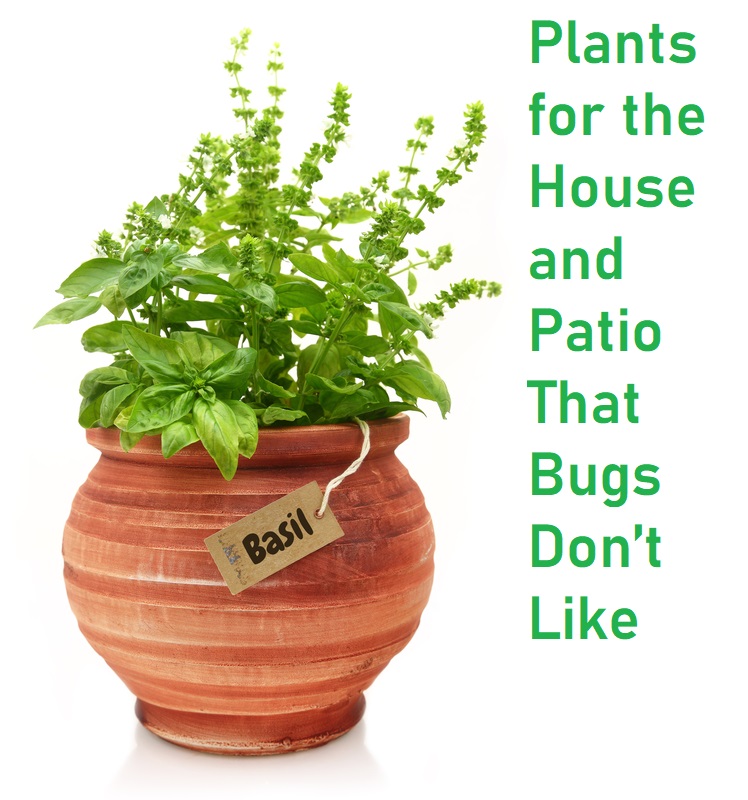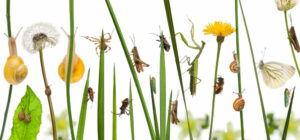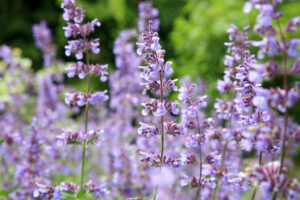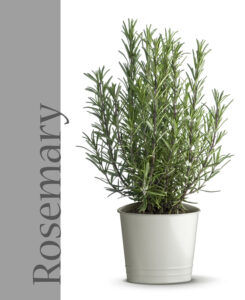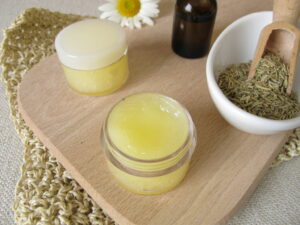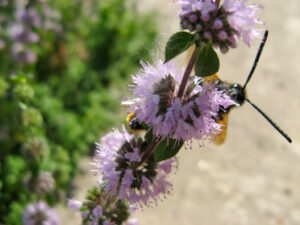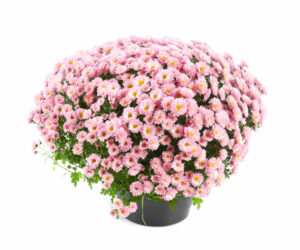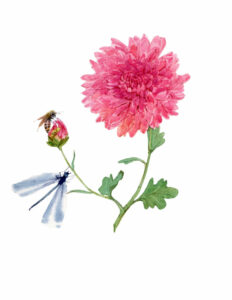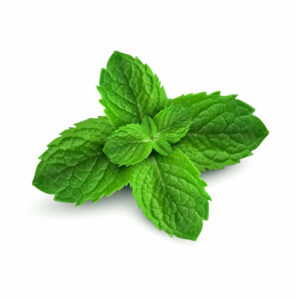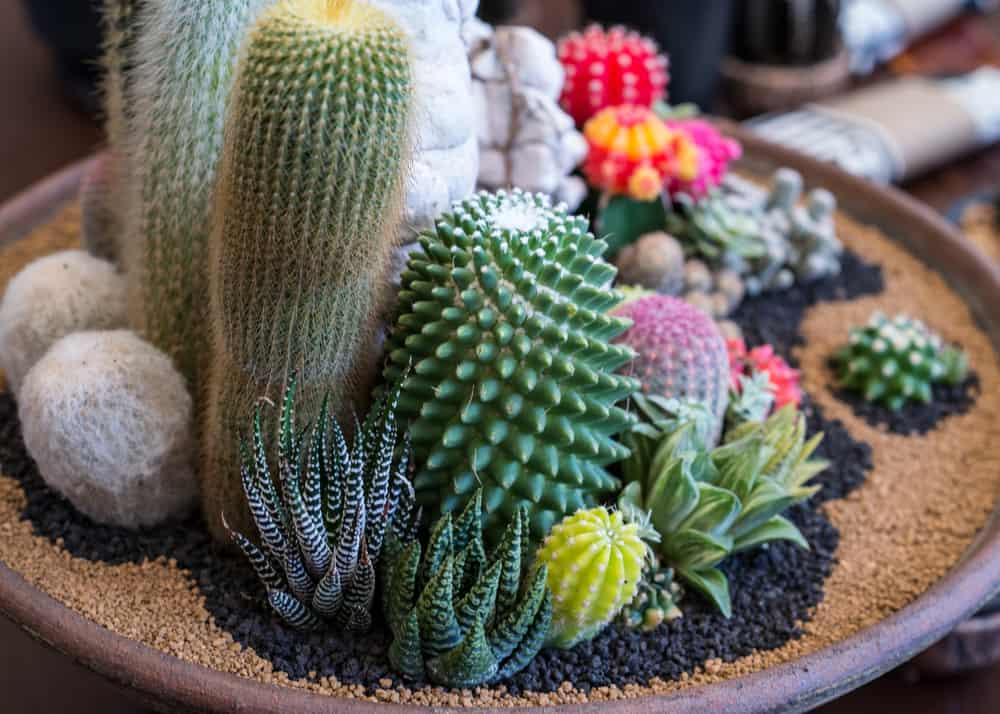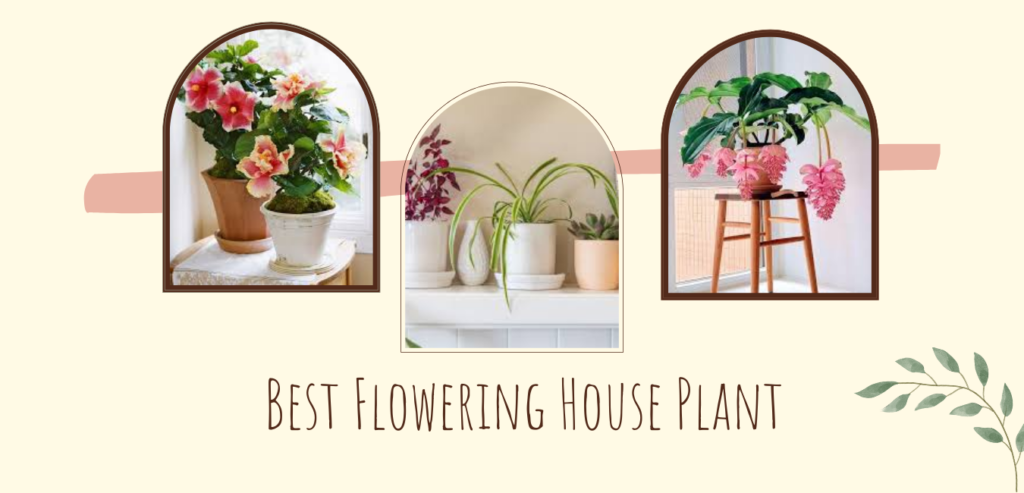HousePlantJoy is supported by our audience. When you purchase through one of our links, we may earn a small affiliate commission. As an Amazon Associate I earn from qualifying purchases. Your cost is not affected.
==================
Plants for the House and Patio That Insects Don’t Like
If you’re a new houseplant-keeping, insects and other pests are one of your concerns. The best thing is that you have various options when selecting indoor plants that repel insects and other bugs.
Houseplants are popular on social media these days. They are a great way to bring the outdoors inside your home. It’s nice to enjoy the look and feel of nature without leaving your house. And although social media trends may be short-lived, indoor gardening may have staying power because of the many benefits, according to many research studies.
Many plant insect repellents release their natural scents. Which can repel mosquitoes, keeps your garden smelling excellent, and keeps annoyances at bay. Growing these plants naturally will help you without spraying chemical repellant.
All in all, houseplants are a good thing to have and are great companions. How do we get rid of them? Plant insect repellents.
How Can Plants Repel Insects And Mosquitoes?
House plants that repel insects are a good consideration for having a houseplant. Many of them are good at dealing with insects and bugs. Insects may be beneficial for pollinating and aerating soil, but consuming and destroying the plants is another thing. But how does a plant repel these plants?
House plants with most of these leaves are naturally toxic to bugs. So they can be repellent to animals and even little kids. Essential oils in these house plants act as the best insect repellent. Insects tend to avoid them, and when they do, they help protect the plants.
You simply need to plant these organic repellants near the plants you need protection from, and they’ll do the job for you.
Natural Mosquito And Bug Repellent Plants
If you hate bugs, mosquitoes and other pests, try these houseplants. They are easy to grow, so you should have no problem keeping them alive. Maybe these can be the best house plant insect repellent for you!
Lavender
Lavender is known for its ability to repel and resist the attraction of bugs, pests, and other insects. The plant has been producing negligible mosquito repellant properties. But most of it is a prize for essential oil derives from its flowers.
It’s funny that the scent we love so much is why lavender repels insects. Lavender oil’s smell confuses mosquitoes and makes it harder for them to find us. Lavender can also repel many other insects that attack plants, like fleas, moths, and even ants.
A lavender plant bug repellent can be an indoor plant as long as it is placed somewhere sunny. Mixed sand into the potting mix is ideal for these plants since they need a drainage system. Best if you place them near doorways and entryways if you want to keep house bugs out.
Lavender Uses and Benefits
- It is a good indoor insect repellent plant.
- It is very aesthetically pleasing due to its appearance and can be cultivated in various ways.
- You may find lavender beneficial for the following:
-
- Insomnia- According to some studies, you improve your sleep by inhaling the scent of lavender, according to research. By inhaling essential oils and scents of other plants, you improve a person’s sleeping quality with insomnia.
- Anxiety – Taking 160 milligram of lavender oil capsules reduces anxiety levels according to studies from 2019
- Headaches – Applying aromatherapy can eases headaches and migraines.
-
Basil
Basil is a great, easy-to-care-for indoor plant. It’s attractive, and it smells wonderful too! Having basil has a lot of culinary uses. Basil makes a great addition to a kitchen garden. Growing basil is a great consideration if your interest includes keeping bugs away. It contains insecticidal properties that repel bugs. A very effective mosquito repellent!
Basil is one of the plants that keep bugs away. The said plant contains substances that can repel these pests, such as eugenol, camphor, and linalool. Mixing basil leaves in boiling water will create a natural repellent that lasts several hours. Instead of using deet or other harsh chemicals, try crushing basil leaves and rubbing them on your skin and clothing. The basil will repel bothersome pests, including mosquitoes.
This plant needs a sunny, well-drained location with regular watering to keep it from drying out. It can grow indoors or outdoors, but I recommend planting it by the door, where you can enjoy the fresh scent whenever you walk into the room.
Basil Benefits And Side Effects
The following are some benefits and adverse effects of keeping a basil plant in your home:
- Basil is a popular houseplant because it doesn’t require much care and is known for improving mental alertness. One study found that smelling peppermint, basil and helichrysum (a herb with a similar chemical composition) can help decrease symptoms of burnout and exhaustion in people who feel mentally exhausted.
- Ingesting basil oil for a long period may risk human health due to its estragole content.
- Having four volatile compounds in basil irritates mosquitoes. It confuses their heat and carbon dioxide sensors forcing them to leave before they can bite you. With several methods, basil can use its repellant property to create a natural mosquito repellent.
- According to research, using essential oil from basil will improve focus and attention for a person feeling fatigue.
Catnip
Catnip is a mint, which means it smells good and is useful for plants to repel bugs. Plant it in your garden or flowerbed to prevent the destruction of your plants by insects! It doesn’t have much preference for where it grows, but you should expect catnip to spread quickly. A good way to keep the insects away from your house without doing bugspray.
Catnip is a great plant in your indoor jungle because it repels mosquitoes and other pesky insects. Various studies have examined the effectiveness of catnip as an insecticide replacement. Catnip releases nepetalactone, which protects it from pests. It is known that catnip prevents mosquitoes.
If you have a cat, keep your catnip out of reach. Cats are drawn to the smell of this herb and will want to chew on it. If you don’t have a cat, feel free to grow it anywhere in your home or on your patio.
Does Catnip Affect Cats?
Cats are equipped with a specialized scent organ called the vomeronasal gland in their mouth. This pathway enables them to collect scents from the nose and mouth and transport them to the brain.
Catnip contains nepetalactone. It can usually find on its leaves, giving a cat a different behavior if it smells its scent. If a cat ingests catnip, it will become tired and calm, having soothing effects. Those cats that rub against the plants to release the stimulating chemical in their brains will get more of a boost.
This house plant contains a chemical that mimics sex hormones in cats. So when they smell it, they are stimulated to engage in behaviors similar to heat—affection, relaxation, and happiness. Some cats may become active, aggressive, and playful as well.
Rosemary
Another herb we find is the rosemary, a natural mosquito repellent. It is a powerful natural insecticide. Knowingly, rosemary repels bugs, and you can use it in your kitchen as a spice. Many cuisines use rosemary as part of their seasonings.
The smell of rosemary is so strong that it can repel insects, such as mosquitoes, from coming near you. Throwing its leaves and stems on fire, the smoke it releases from the herbal plant becomes an extremely potent mosquito repellent. The rosemary plant is known for keeping mosquitoes and other pesky insects out of the house. It is one of the house plants that repel insects. Keeping the insects far from your home makes your plant even more beneficial.
Rosemary can serve as a plant based insect repellent. To grow them, remember that it is also susceptible to pests and disease. It may not be the best choice for beginners, but there are ways to ensure your plant grows well. Rosemary prefers a hot, dry climate and should be planted in a sunny area. Providing it with an average of at least six hours of sunlight per day is essential.
Can rosemary be toxic?
No, the herb Rosemary is not toxic to humans in moderate amounts. It does not take away how good rosemary for mosquito repellent is. However, the rosemary essential oil can prove dangerous when taken in large amounts or use regularly.
This plant’s essential oil contains camphor, an irritant substance that can be toxic to humans. Also, camphor oil regards as a convulsant oil, making it neurotoxic. It is dangerous when consumed in large quantities, can irritate the digestive tract and damage the kidneys.
Best uses of rosemary
The list below will show you the other uses of this herb:
- Cuisine Spices.
Rosemary is a versatile herb that pairs well with many ingredients. Rosemary is delicious in marinades, especially with citrus fruits, garlic, peppercorn and butter. You can also use rosemary in sauces and soups—or try it in a salad sprinkled over goat cheese!
- Essential Oil.
You can use your herbs to make high-quality essential oils for various health-related benefits.
- Plant-Insect Repellent.
This natural repellent works well against all kinds of pests. It’s also said that dried rosemary can deter mice or is a mice repellent. Rodents tend to avoid cupboards with dry rosemary during the winter, so some people suggest sprinkling it in the back.
- Antioxidants And Anti-Inflammatory.
There are various anti-inflammatory and antioxidant compounds in rosemary. Which may enhance the immune system as well as improve circulation. However, according to laboratory studies, extra precautions are necessary because rosemary is highly antioxidant.
Pennyroyal
Pennyroyal, also known as squaw mint, mosquito plant, and pudding grass, is a popular mosquito repellent. This plant is a natural mosquito repellent or insect repellent that protects us against pests like ticks, fleas, and spiders. Usually, it is used to make teas and oils for medicinal purposes.
There is a strong fragrance similar to spearmint from pennyroyal, making it a great use for a natural mosquito repellant.
The smell of pennyroyal repels mosquitoes, preventing them from flying where the plant is planted. If insects manage to live, the odor will eventually kill them.
The pennyroyal plant is an easy-to-maintain herb that thrives in direct or indirect sunlight. It is small and low-growing. It usually grows in trails, making it a perfect hanging plant for kitchens and other indoor spaces.
Uses and benefits of pennyroyal and its side effect
There are several applications and benefits to using this herb, as well as some side effects, such as:
- Ingestion of pennyroyal oil in water stimulates bowel movements, beneficial for gastrointestinal health.
- The powerful scent of pennyroyal makes it an effective insect repellent. However, you must only utilize small amounts because it can be dangerous when abused.
- Due to its ability to kill viruses and bacteria, pennyroyal is sometimes used to treat pneumonia. Nonetheless, you should consult your physician before taking pennyroyal, as you should exercise extreme caution.
- If you want to use pennyroyal essential oil, it’s best to keep the amount you use very small. Large amounts of the oil can cause serious liver and kidney damage and nervous system problems.
Chrysanthemum
Chrysanthemums are good to use with a colorfol and eye-catching flowers for decorations during autumn. However, chrysanthemums also act as natural insect repellents due to the properties of their oils.
It can repel insects such as cockroaches, bugs, flies, mice, etc., and gain popularity due to its ability. Chrysanthemums are popular as cockroach repellent. It is also beneficial in gardens, as it deters many insects that damage plants. Consequently, you’ll often find chrysanthemum pots in vegetable gardens. Having this house plant that repel insect is a big help at home.
Chrysanthemums are good plant-based insect repellent and only generally require an average amount of care. They thrive in bright and sunny areas and need water when they dry out. Picking off its wither flower is a must when leaves discolor appears.
How chrysanthemum repel insects?
Since Chrysanthemums naturally produce chemical pyrethrin, growing some in your garden can help keep away pests. The reason why it is also known as perennial plants that repel mosquitoes. Pyrethrin is a neurotoxin that kills insects and doesn’t harm mammals, and is a repellent that insects will avoid. Its repellent effect is use to keep pests away from your plants. One way to accomplish this is by planting chrysanthemums throughout your garden, especially near plants prone to infestation.
To use chrysanthemum for pest control, plant it about 1 to 1½ feet from the plants you wish to protect.
Marigold
Looking for a beautiful, useful plant to decorate your home and repel insects? Look no further than the Marigold. Marigolds are annual flowers with rich blooms and sunflower family members, Asteraceae. These flowers look good, but they safeguard against pests and reckon as good indoor plants that repel insects as well.
Among the most widely known flower species, marigolds are used in gardens and houseplants. Marigold suspects to contain pyrethrum. A natural insect repellent that is found in many commercial insect repellents. The flower’s scent helps repel bugs and attracts some goods for plant growth and pest control. These flowers repel mosquitoes and protect plants from whiteflies, vegetable bugs, aphids, and even rabbits.
It is easy to maintain marigolds, growing well under humid and dry conditions. They grow under full sun to partial shade and waterers them only when their soil dries. In addition to their pest-repelling qualities, marigolds work well nearby vegetable gardens.
Amazing uses of marigolds
Learn how to use marigolds and some of the advantages they provide:
- Body toxins. Marigold is a useful herb in the body’s detoxification process. In addition to benefiting the digestive system, it helps alleviate inflammation of the lymph nodes. It removes all toxic materials accumulated in the body.
- Insect Repellent. Marigolds emit a strong odor that can repel mosquitoes, pests & other annoying insects. Home gardens and candles also use marigolds for their extract. In addition, marigolds contain antioxidants that provide numerous health benefits.
- Trap Crops. Trap crops are plants that entice undesirable pests away from your plants and vegetables. Essentially, trap crops work as decoys.
Mint
Mint is a fragrant, perennial herb frequently used in cooking. You might be familiar with mint’s scent because you probably put it into your tea or on your dessert. Mint grows in vegetable gardens because it protects the plants from harmful pests. A well-known benefit of Mint is that it is one of the indoor plants that repel insects.
If you recognize the scent that Mints give off, it is something that you can utilize to keep mosquitoes and other pests away. Likewise, dry leaves are used and placed in various house parts. So it can have the same effect as indoor plants in eliminating mosquitoes and other pest insects. One of this plant’s great advantages is that it does not require much care. Placing this indoors or outdoor, usually in the sun or partial shade, can keep the soil damp. However, not containing it, a pot can take over your garden. So it is important to remember that mint tends to spread out of control.
Are mints effective at killing insects?
Mint insect repellents are effective at killing insects. This plant does not kill pests but emits a powerful scent. Therefore, it attracts beneficial insects that feed on pest populations and repel pests from the garden. It works as a pesticide because of its active ingredient, menthol. Menthol has biocidal properties, so it’s effective at controlling mosquito larvae, mites and other pests.
5 Easiest Repellent Plants To Grow
Below are five easy-to-grow plant insect repellent favorites:
- Catnips – This plant is easy-to-grow to the point that it self-sows aggressively. To avert it from spreading to your other plantings, cultivate it in a container. It will also allow you to move it closer to you and your guests should the mosquitoes come out!
- Lavender – A distinct aroma emanates from this aromatic herb without crushing or brushing the leaves. These noticeable odors repel mosquitoes. A perennial, basil flourishes in the sun and requires well-drained soil. Proper care is necessary for it and will fend off mosquitoes for you.
- Marigold – Among the many insect repellants on the market, Pyrethrum is found in Marigolds, a compound found in marigolds. Marigolds grow in full sun with fertile soil. So marigolds may be easy to plant with their seeds, but starter plants with reasonable prices are still present.
- Ageratum – Flossflower, or Ageratum, is a plant that releases a particularly pungent smell that mosquitoes find offensive. Several commercial mosquito repellents contain coumarin, which is abundant in this plant. Despite its ability to withstand full sunlight and partial shade, the plant does not need rich soil, making it an easy plant to raise. The plant is popular in rock gardens, where plants growing at lower levels are preferred.
Try Adding Plants that Repel Bugs and Mosquitoes In The House
Are you all set to grow some plants indoors without worrying about pesky insects? Now that you know about the plants that repel bugs, it’s time to get pots and trowels and start planting! Don’t forget to include some indoor plants that repel insects in your plan.
With the global warming problems and the green living initiative, commercial bug sprays have become a topic of concern because of their harmful effect on the environment. Instead of using harsh chemicals to repel mosquitoes, natural methods such as using plants that repel mosquitoes are more appealing.
Let’s banish bugspray insect repellents from our lives and embrace plants that keep bugs away. It is a way safer and cheaper alternative. Think smart when you plant!
Read More:
How to Re-Pot a Boston Fern: Elevating Your Outdoor Ferns Oasis with Elegance

